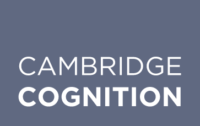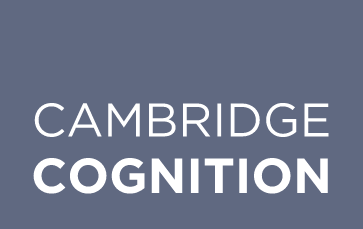The Convergence: Integrating Blood Biomarker Tests and Digital Cognition to Accelerate Alzheimer’s Research
The paradigm for diagnosing and monitoring Alzheimer’s disease (AD) is shifting from relying on clinical symptoms to incorporating definitive biological evidence of amyloid and tau proteinopathy. As discussed in our recent joint webinar with C2N Diagnostics and the AI-Mind project, combining blood biomarker (BBM) tests and digital cognitive assessments (DCAs) represents a fundamental, integrated shift in disease research that enables faster detection, more precise monitoring, and potentially more effective therapeutic interventions. This combination of cognitive and physiological assessments is crucial for advancing brain health research.
The Imperative for Biomarker-Driven Trials
While the reliance on clinical opinion and the high cost and invasiveness of more definitive pathophysiological evidence (via PET scans or CSF analysis from lumbar puncture) have historically defined AD diagnosis, this landscape is rapidly changing.
As Dr. Braunstein noted, dementia is a clinical phenotype, not the underlying disease. In fact, up to 39% of early dementia due to AD cases are misdiagnosed in primary care settings in the absence of biomarker data.
This diagnostic inconsistency drives a need for molecular characterization to ensure proper management, including treatment.
- BBM tests as Confirmatory Tools
Blood tests, such as the PrecivityAD2™ test can measure analytes like Aβ42/40 and p-tau217/np-tau217 (known as %p-tau217), which can provide high diagnostic accuracy (over 90%) in confirming presence of brain amyloid pathology. These offer a less invasive and more accessible alternatives to CSF & PET for early diagnosis and monitoring. - Targeting the Treatment Window
This is critical because effective disease-modifying therapies have been approved by various global regulatory bodies, but their success depends on identifying patients early, while they are still within the appropriate “treatment window”. If diagnosis is delayed by months, or even years (up to two years in some systems), patients can miss the opportunity for intervention.
DCAs: Scaling Precision in Functional Assessment
While BBM tests can excel at confirming presence of AD pathology, clinical trials require objective, longitudinal measures of functional change – the impact of the disease. This is where DCAs provide essential value, tackling the systematic shortage of specialists and the bottleneck in memory care.
Dr. Cormack highlighted that to address the millions of people concerned about memory, assessment needs to be deployed at scale.
- Feasibility and Compliance
Data shows that remote, digital cognitive assessments are not only scalable and accessible, but maintain high compliance and engagement over prolonged periods, even in patients with mild cognitive impairment (MCI) or mild AD. - Sensitivity to Biology
Modern DCAs are designed to be sensitive not just to the clinical phenotype, but also to the underlying biology. Certain tasks are able to selectively activate the hippocampus, an area particularly impaired in MCI and AD, and are statistically sensitive to AD-related biomarkers like hippocampal volume, CSF amyloid, and tau. Furthermore, the evidence shows that DCAs are able to predict functional decline over 24 months.
A Blueprint for Integration
The AI Mind project provides a powerful, real-world example of this convergence in a longitudinal setting. As Dr. Hatlestad-Hall described, the study combines high-density EEG (neurophysiology), CANTAB® DCAs (behaviour/function), and BBMs (pathology) across multiple European cohorts.
Preliminary insights from this study, based on unpublished data, reveal the complex, but measurable, relationships essential for clinical trial design:
- Plasma p-tau217 levels were already dependent on APOE ε4 status at the baseline MCI stage.
- Performance on a classic verbal memory test was negatively correlated with plasma p-tau217 levels.
- Higher p-tau217 load at baseline appeared related to time-dependent cognitive decline, with higher quartile groups showing an average drop in performance after their second visit on tests like Pattern Recognition Memory (PRM).
This combination of tools offers a path to investigate functional trajectories in relation to biomarker evolution, providing the objective data drug developers need to manage trial risk and confirm treatment efficacy.
Precision Medicine for AD: Unifying Pathology and Function
The unified approach of precise pathology confirmation (BBM tests) and objective, scalable functional measurement (DCAs) positions CNS drug developers to transition AD care from a reactive model to a preventive one. This precision is the key to optimizing drug development, ensuring trial cohorts are appropriately enriched, and validating efficacy endpoints, ultimately helping to accelerate the delivery of life-changing treatments.
See it in Action
Speak to us to find out how BBMs and DCAs can support your research. Complete the form below and one of our team will be in touch with you shortly!
About C2N Diagnostics
C2N is a specialty diagnostics company providing exceptional laboratory services and products in the field of brain health. C2N’s high-resolution mass spectrometry-based biomarker products are used for: clinical decision-making to improve patient care, including diagnosis and treatment monitoring; maximizing the quality and efficiency of clinical trials that test novel treatments for neurodegeneration; and providing innovative tools to help healthcare researchers better understand novel mechanisms of disease, identify new treatment targets, and conduct important epidemiological studies to improve global public health.
About the AI-Mind Project
The AI-Mind project aims to ease the burden of dementia by creating innovative, AI-driven tools that assist healthcare professionals in predicting dementia risks in patients affected by mild cognitive impairment (MCI). Most dementia treatments focus on managing symptoms once they appear, leaving little room for early prevention. AI-Mind seeks to transform this process by replacing complex and inefficient screening methods with advanced, automated tools powered by AI. These tools will address the critical need for early and precise diagnosis, allowing doctors to identify patients at high risk of developing dementia with greater confidence.
The AI-Mind project has received funding from the European Union’s Horizon 2020 Research and Innovation Programme under grant agreement No 964220. This article reflects the views of the author, and the European Commission is not responsible for any use that may be made of the information it contains.

